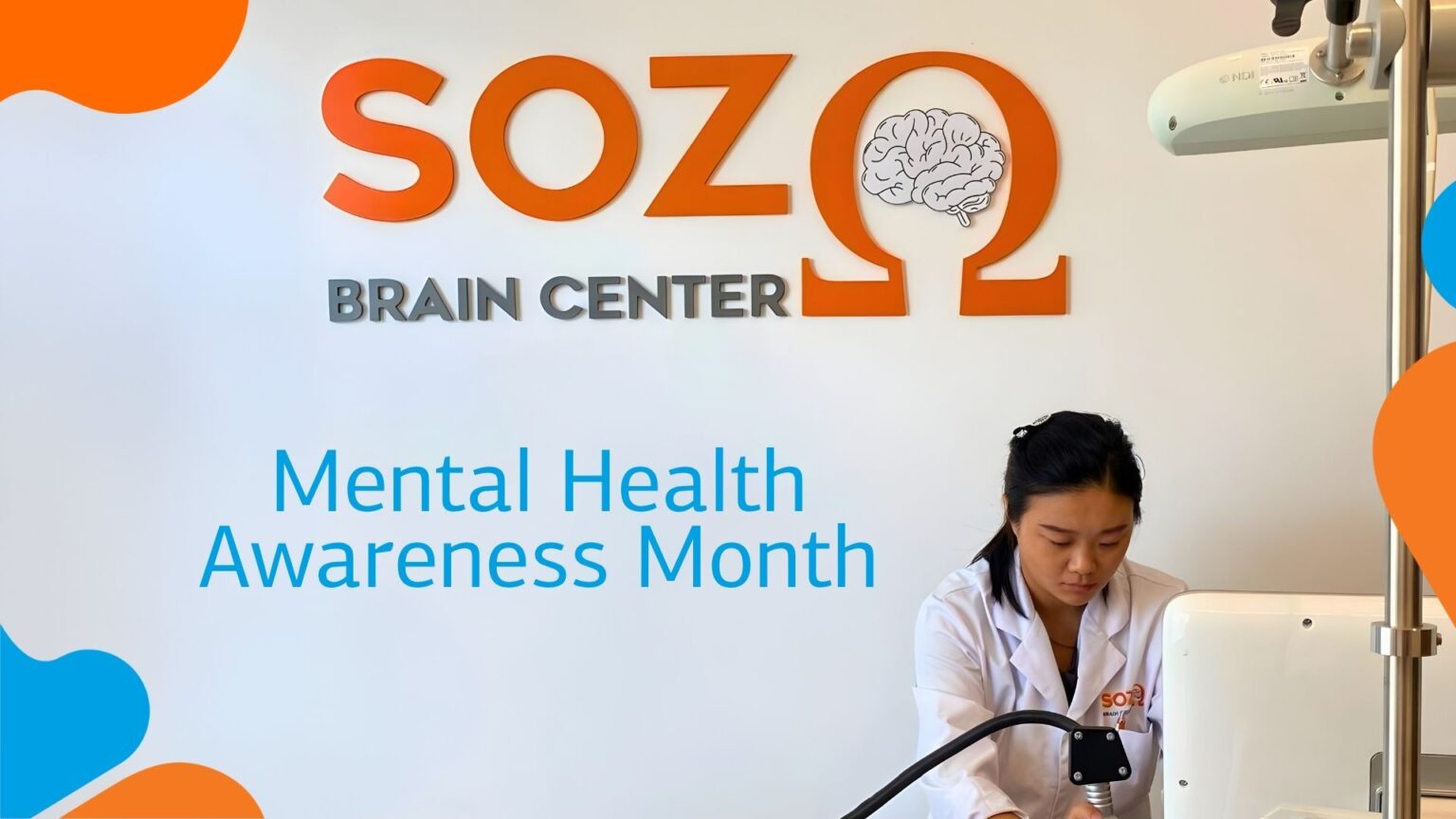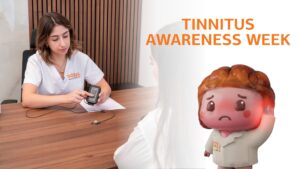October is Mental Health Awareness Month and each year this gives us an opportunity to open honest conversations about mental health, including its challenges, the stigma surrounding it, and paths toward getting help.
At SOZO Brain Center, we believe awareness is only the first step. True progress comes when we pair understanding with innovative, evidence-based treatments that empower individuals on their journey to recovery. One such breakthrough is neuromodulation, a technology showing remarkable promise across a wide range of mental health conditions.
Why Talking about Mental Health is Important
Despite growing awareness, many people still face judgment, silence, and shame when confronting mental health challenges. This stigma often delays treatment, deepens isolation, and worsens outcomes.
It’s crucial to remember that mental health conditions are health conditions influenced by biology, environment, life experiences, and genetics.
By sharing stories, speaking openly about mental health, and providing options for supporting treatment for different conditions, we aim to create a culture where people feel safe to seek support.
The Relationship Between Neuromodulation and Mental Health
Neuromodulation refers to techniques that stimulate or regulate the activity of neural circuits in the brain, typically non-invasively. At SOZO Brain Center, we use neuromodulation as a supporting treatment for mental health conditions.
Clinical research continues to demonstrate neuromodulation’s benefits across multiple conditions, including:
- Depression
- Anxiety disorders
- Bipolar disorder
- Insomnia
- Post-Traumatic Stress Disorder (PTSD)
- Addiction
- and many more
Let’s explore how this technology is transforming care for each of these conditions.
Depression
Depression is a common mental disorder characterized by persistent sadness and a loss of interest in activities that are typically enjoyable. This tends to lead to an inability to carry out daily activities, erratic sleep habits, loss of appetite (or increased appetite with atypical depression), constant fatigue, etc. It can significantly impair social, occupational, and daily functioning.
Depression affects over 280 million people worldwide (WHO estimate), with a lifetime prevalence of about 15–20%. It is more common in women, often emerging in adolescence or early adulthood, and can be recurrent or chronic.
Neuromodulation is transforming how we approach depression—offering a safe, effective, and drug-free solution for individuals who haven’t fully responded to conventional therapies. Backed by clinical research, neuromodulation consistently delivers meaningful symptom relief in 25% to 50% of patients, with up to 40% achieving significant improvement.
Neuromodulation helps reverse core physiological changes in depression by restoring cortical activity, enhancing connectivity and neuroplasticity, and modulating neurotransmitter systems. This multi-level impact makes it a promising adjunctive treatment, particularly in patients with disrupted brain network function.
Anxiety Disorders
Anxiety disorders are characterized by excessive fear and worry and related behavioral disturbances. There are several different kinds of anxiety disorders, such as: generalized anxiety disorder (characterized by excessive worry), panic disorder (characterized by panic attacks), social anxiety disorder (characterized by excessive fear and worry in social situations), separation anxiety disorder (characterized by excessive fear or anxiety about separation from those individuals to whom the person has a deep emotional bond), and others.
An estimated 4.05% of the global population has an anxiety disorder, translating to 301 million people. The number of persons affected has increased by more than 55% from 1990 to 2021. At SOZO Brain Center, we often recommend non-invasive neuromodulation to help regulate overactive neural circuits.
Bipolar Disorder
Bipolar disorder is a mental health condition with extreme mood swings, from emotional highs (you feel euphoric, energized, or excessively irritable) to extreme opposite lows (you could feel melancholy or hopeless and stop enjoying or being interested in most activities). Episodes of mood swings may occur rarely or multiple times a year. While most people will experience some emotional symptoms between episodes, some may not experience any.
In 2019, 40 million people experienced bipolar disorder. Neuromodulation offers a supportive option for stabilizing mood and improving cognitive flexibility, when integrated into a broader treatment plan.
Insomnia
Insomnia is a sleep disorder that can make it difficult to get asleep, keep asleep, or lead you to wake up too early and have trouble falling back asleep. This disorder could negatively affect your health, productivity at work, and quality of life in addition to your energy level and mood. Chronic insomnia is highly prevalent and affects approximately 30% of the general population.
At SOZO Brain Center we recommend neuromodulation to help rebalance brain activity linked to sleep regulation, often improving sleep quality and daytime alertness without medication dependence.
PTSD
A horrific event can cause post-traumatic stress disorder (PTSD), a mental health disease that can be brought on by experiencing it or seeing it. Flashbacks, nightmares, excruciating anxiety, and uncontrollable thoughts about the incident are just a few possible symptoms.
Moderate quality evidence finds the lifetime worldwide prevalence of PTSD in the general population is around 3.9%. In people known to have been exposed to trauma, the rate is 5.6%.
Non-invasive neuromodulation can help regulate hyperactive neural circuits, reducing the intensity of intrusive symptoms and supporting emotional recovery.
Addiction
Addiction is a compulsive, ongoing, physiological or psychological urge for a habit-forming substance, action, or activity that has negative physical, psychological, or social impacts and usually results in well-defined withdrawal or abstinence symptoms such as anxiety, irritability, tremors, or nausea.
Neuromodulation can support recovery by helping to normalize reward pathways and reduce cravings, serving as a valuable adjunct to behavioral and medical treatments.
To learn more about the scientific research behind neuromodulation as a supporting treatment for the mental health conditions we mentioned, view this page.
Moving Forward: Support for Mental Health Treatment Through Innovation
At SOZO Brain Center, we are committed to reducing stigma, advancing treatment, and restoring hope for individuals facing mental health challenges.
Neuromodulation is not a cure-all, but it represents a powerful step forward in personalized, neuroscience-driven care—one that gives patients new options for healing and long-term wellness.




